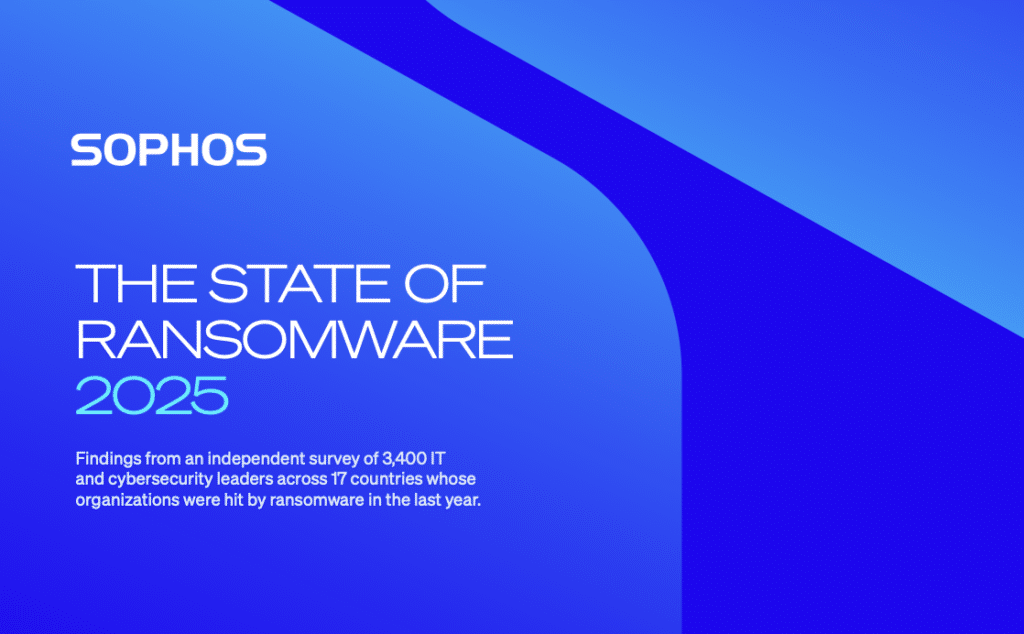Protect your student data from continued ransomware attacks, says Espria

Legacy systems present major vulnerabilities to organisations across all sectors trying to secure their operations in today’s cybersecurity climate. With the advancement of digital tools at a rapid rate and the onset of generative AI-boosted attacks proliferating amongst cyber actors, there are numerous new threats as well as exposed gaps in security that can no longer be ignored. The Education sector is no exception to attack – it’s just another target containing data ripe for exploitation.
Sophos’ The State of Ransomware in Education 2024 report has highlighted that, although ransomware attack rates are falling, they remain at dangerous levels. Where only 63% of lower education and 66% of higher education organisations were hit by
ransomware in the last year – a considerable decrease from the 80% and 79%
reported in 2023, respectively, attack rates in education remain greater than the global cross-sector average (59%).
Brian Sibley, Virtual CTO at Espria comments, “Education remains a target for cyber actors due to the lucrative value of data available for minimal investment in attack. Often, these organisations find themselves without the cybersecurity budget, or even IT budget, for effective tools, which thus becomes a wider attack surface for ransomware and similar cyber attacks.
“Particularly with legacy systems, schools must cover a wider range of hardware, some much older and thus needing extensive updates and safeguarding. Add to that the factor that systems are accessed by a range of people who may fall prey to phishing attacks or malicious emails, and you create the perfect medium for network entry and attack. IT operators for schools and academies can’t be complacent when it comes to security, as threats aren’t going away.”
The Sophos’ report also highlights that, whilst attack rates have fallen slowly, recovery costs have more than doubled. The average cost to recover from ransomware attacks in primary and secondary education organisations has more than doubled since 2023 to £2.8 million, and in higher education organisations nearly quadrupled to over £3 million. Two-thirds of organisations will choose to pay up to get encrypted data back – a massive increase from previous years.
Sibley commented, “IT operators in schools need to be proactive in their cybersecurity strategy. With already tight budgets to contend with a hefty ransomware payout is something they definitely cannot afford. Mitigating threats before they can occur is a simple strategy, but operators need to have the orchestration of security tools in place to ensure nothing slips through the cracks when it comes to cyber threats.
“Your choice of MSP is therefore critical in architecting the best approach to close security gaps. Through a wider alliance of cybersecurity partnerships, schools and academies can gain access to greater expertise and compatible security solutions through their managed service provider, and thus quickly upgrade their existing operations to become more future-ready against threats now and in the coming years. All of this is also available on a budget, helping organisations reduce costs, not just via better solution pricing, but also in preventing payouts to attackers.”
“Education will continue to be a target when it comes to cybercriminal attacks, and therefore organisations need to be making operational IT changes now before further attacks occur. Can you really afford to be risking your security and putting staff, parents’ and students’ data at risk? A collaborative security partnership gives educators the tools they need to ensure safe learning for all students in the digital age – the options are there, it’s just about trusting the right MSP.”
You may be interested in
The 2025 State of Ransomware: Key Insights on Attacks, Costs, and Recovery
Ransomware continues to evolve — and so must our defenses. The State of Ransomware 2025 report from Sophos presents one of the most comprehensive views yet into how organisations around the world are being impacted by ransomware attacks. Based on an independent survey of 3,400 IT and cybersecurity leaders across 17 countries, the report explores how attacks are evolving, the operational weaknesses adversaries exploit, and the human and financial tolls that follow. Whether you’re building a cybersecurity strategy or assessing risk, this year’s findings offer crucial, real-world insights to guide your response. Key Findings from…
Outgrowing your MSP; businesses need a provider that scales with their growth
To stay competitive, business leaders must align with MSPs that deliver strategic value, drive innovation, and support to scale. Now firmly into 2025, it’s becoming clear what the year has in store for the IT landscape. For SMBs, the message is clear: business growth must be matched with smarter, more scalable managed services. The demand for cyber-resilient, cloud-first and AI-integrated solutions is no longer a forecast – it’s a reality already shaping business priorities. According to leading global technology market analyst firm Canalys’ MSP Trends 2025 report, the MSP model is transforming under growing pressure…
End of windows 10 support signal urgent action needed from UK organisations as cyberattacks continue to rise
Recent breaches at major UK retailers, combined with the approaching end of life of Windows 10, highlights a critical moment for IT resilience planning The recent wave of cyberattacks targeting major UK retailers has highlighted the growing security risks associated with organisations running outdated systems and applications and maintaining weak identity verification protocols. These incidents—particularly those involving Marks & Spencer and the Co-Op—have starkly exposed how vulnerable legacy infrastructure and insufficient access controls can be. In both cases, attackers successfully posed as legitimate employees and manipulated IT help desks into resetting internal passwords, ultimately gaining…
UK SMEs must fortify their cybersecurity against geopolitical risks, says Espria
A recent Sky News investigation highlighted an uptick in cyberattacks tied to the Iran conflict that are targeting businesses across multiple sectors. Speaking at the NATO Summit, Prime Minister Sir Keir Starmer urged UK businesses, regardless of size or sector, to prioritise cybersecurity and ‘take immediate steps to review and strengthen their defences.’ While the warning is timely in tone, businesses are already becoming targets of politically motivated cyberattacks, emphasising the need for heightened vigilance. “As tensions spread globally, threat actors will continue to exploit digital vulnerabilities, and neutral businesses may be caught in the…
End of windows 10 support signal urgent action needed from UK organisations as cyberattacks continue to rise
End of windows 10 support signal urgent action needed from UK organisations as cyberattacks continue to rise
Why Businesses Should Invest in ESG: Lessons learned by Espria
In today’s competitive landscape, Environmental, Social and Governance (ESG) performance is no longer just a “nice to have”—it is a critical business imperative. Companies that prioritise ESG are better positioned for long-term success, risk mitigation, and reputation enhancement. Today’s world demands more from companies than just financial performance. Customers want transparency. Employees want purpose. Investors want resilience. ESG helps businesses manage risk, seize new opportunities and build trust with the people who matter most. It is how you can stay competitive, stay responsible and stay relevant in a fast-changing world. A powerful case study of…





